Inventing Scrooge uncovers the real-life inspirations from Charles
Dickens' own world that led to the fascinating creation of his most
beloved tale: A Christmas Carol.
When Charles Dickens conceived the story that would become A Christmas Carol, little did he know that his "ghostly little book" would reinvent the way we keep Christmas. From a graveyard in Edinburgh to the Marshalsea Prison in London to his schoolboy years in Chatham and even his lifelong fascination with dance, so much of Dickens' past and present are woven into the characters and themes of A Christmas Carol. And by understanding the story behind the story, readers will come to embrace the holiday classic all the more. To this day, we look to the Christmas season as a time of warmth and celebration among family, friends, and strangers alike. And every year at Christmas, not only do our lives get better for all the festivity, but we get better, as people. Just like Ebenezer Scrooge.
Including "Oklahoma," "South Pacific," "Guys and Dolls," "Fiddler on the Roof," "Cabaret," and 11 other great shows, this landmark collection is your ticket to the Golden Age of the Broadway musical.
The Broadway musical is one of America's great indigenous popular forms, a glorious hybrid that emerged "out of our speech, our tempo, our moral attitudes, our way of moving" (as Leonard Bernstein put it). Now in a landmark two-volume collection, The Library of America presents sixteen enduring masterpieces charting the Broadway musical's narrative tradition from the groundbreaking "Show Boat" (1927) through the genre's Golden Age to its response to the turbulent 1960s with the Tony Award-winning shows "Cabaret" and "1776."
Based on new research, this historic collection presents the complete libretto of each musical in its Broadway opening night version, making these beloved stories available as never before. Irving Berlin and Moss Hart's "As Thousands Cheer" is published here for the first time. "Show Boat" and "Pal Joey" are presented in newly restored versions. Seven other shows, including "South Pacific," "Guys and Dolls," and "My Fair Lady," return to print for the first time in decades.
Each of these classic musicals has evolved over time, receiving many important revivals and new productions. This boxed set offers readers unprecedented insight into this living history with a selection of hard-to-find or previously unpublished supplementary items, including lyrics of songs dropped out-of-town or added in later revivals. Lavishly illustrated-- with 64 pages of photographs and other images drawn from the original productions, the set also contains biographical sketches of the book writers and lyricists; cast lists and other information about the shows' Broadway openings; and detailed accounts of the path each show took on the road to Broadway. As a special feature, the box includes 16 full-color postcards reproducing the original show posters.
American Musicals contains:
"Show Boat"
Book and lyrics by Oscar Hammerstein II - Music by Jerome Kern
"As Thousands Cheer"
Lyrics and music by Irving Berlin - Sketches by Moss Hart
"Pal Joey"
Book by John O'Hara - Music by Richard Rodgers - Lyrics by Lorenz Hart
"Oklahoma "
Music by Richard Rodgers - Book and lyrics by Oscar Hammerstein II
"On the Town"
Book and lyrics by Betty Comden and Adolph Green - Music by Leonard Bernstein
"Finian's Rainbow"
Music by Burton Lane - Lyrics by E. Y. Harburg - Book by Fred Saidy and E. Y. Harburg
"Kiss Me, Kate"
Music and lyrics by Cole Porter - Book by Sam uel] and Bella Spewack
"South Pacific"
Music by Richard Rodgers - Book and lyrics by Oscar Hammerstein II
"Guys and Dolls"
Music and lyrics by Frank Loesser - Book by Jo Swerling and Abe Burrows
"The Pajama Game"
Book by George Abbott and Richard Bissell - Music and lyrics by Richard Adler and Jerry Ross
"My Fair Lady"
Adaptation and lyrics by Alan Jay Lerner - Music by Frederick Loewe
"Gypsy"
Book by Arthur Laurents - Music by Jule Styne
Lyrics by Stephen Sondheim
"A Funny Thing Happened on the Way to the Forum"
Book by Larry Gelbart and Burt Shevelove - Lyrics and music by Stephen Sondheim
"Fiddler on the Roof"
Book by Joseph Stein - Music by Jerry Bock - Lyrics by Sheldon Harnick
"Cabaret"
Book by Joe Masteroff - Music by John Kander - Lyrics by Fred Ebb
"1776"
Music and lyrics by Sherman Edwards - Book by Peter Stone
The definitive firsthand narrative of our nation's greatest conflict, now in a collector's boxed set: "Has there ever been another historical crisis of the magnitude of 1861-65 in which so many people were so articulate?" wondered Edmund Wilson in his 1962 classic Patriotic Gore. Reflecting the unprecedented, widespread literacy of nineteenth century Americans, an astonishing number of writers--white and black, male and female, soldiers and politicians, public intellectuals and private citizens--left vivid first-hand accounts of the Civil War.
For the last four years, to mark the sesquicentennial of the most epochal event in American history, The Library of America has published a four-volume series that orchestrates this symphony of voices to chronicle as never before the full drama of the nation's most devastating conflict, from Lincoln's election in 186o to the Grand Review of the Armies in 1865. Now, in advance of the 150th anniversary of the war's climactic final months, all four volumes are presented in a beautiful collector's box. As a special feature, each box includes four pull-out posters featuring full color maps by expert Civil War cartographer Earl McElfresh. Here is the ultimate gift for anyone interested in the Civil War era.
When Charles Dickens conceived the story that would become A Christmas Carol, little did he know that his "ghostly little book" would reinvent the way we keep Christmas. From a graveyard in Edinburgh to the Marshalsea Prison in London to his schoolboy years in Chatham and even his lifelong fascination with dance, so much of Dickens' past and present are woven into the characters and themes of A Christmas Carol. And by understanding the story behind the story, readers will come to embrace the holiday classic all the more. To this day, we look to the Christmas season as a time of warmth and celebration among family, friends, and strangers alike. And every year at Christmas, not only do our lives get better for all the festivity, but we get better, as people. Just like Ebenezer Scrooge.
Including "Oklahoma," "South Pacific," "Guys and Dolls," "Fiddler on the Roof," "Cabaret," and 11 other great shows, this landmark collection is your ticket to the Golden Age of the Broadway musical.
The Broadway musical is one of America's great indigenous popular forms, a glorious hybrid that emerged "out of our speech, our tempo, our moral attitudes, our way of moving" (as Leonard Bernstein put it). Now in a landmark two-volume collection, The Library of America presents sixteen enduring masterpieces charting the Broadway musical's narrative tradition from the groundbreaking "Show Boat" (1927) through the genre's Golden Age to its response to the turbulent 1960s with the Tony Award-winning shows "Cabaret" and "1776."
Based on new research, this historic collection presents the complete libretto of each musical in its Broadway opening night version, making these beloved stories available as never before. Irving Berlin and Moss Hart's "As Thousands Cheer" is published here for the first time. "Show Boat" and "Pal Joey" are presented in newly restored versions. Seven other shows, including "South Pacific," "Guys and Dolls," and "My Fair Lady," return to print for the first time in decades.
Each of these classic musicals has evolved over time, receiving many important revivals and new productions. This boxed set offers readers unprecedented insight into this living history with a selection of hard-to-find or previously unpublished supplementary items, including lyrics of songs dropped out-of-town or added in later revivals. Lavishly illustrated-- with 64 pages of photographs and other images drawn from the original productions, the set also contains biographical sketches of the book writers and lyricists; cast lists and other information about the shows' Broadway openings; and detailed accounts of the path each show took on the road to Broadway. As a special feature, the box includes 16 full-color postcards reproducing the original show posters.
American Musicals contains:
"Show Boat"
Book and lyrics by Oscar Hammerstein II - Music by Jerome Kern
"As Thousands Cheer"
Lyrics and music by Irving Berlin - Sketches by Moss Hart
"Pal Joey"
Book by John O'Hara - Music by Richard Rodgers - Lyrics by Lorenz Hart
"Oklahoma "
Music by Richard Rodgers - Book and lyrics by Oscar Hammerstein II
"On the Town"
Book and lyrics by Betty Comden and Adolph Green - Music by Leonard Bernstein
"Finian's Rainbow"
Music by Burton Lane - Lyrics by E. Y. Harburg - Book by Fred Saidy and E. Y. Harburg
"Kiss Me, Kate"
Music and lyrics by Cole Porter - Book by Sam uel] and Bella Spewack
"South Pacific"
Music by Richard Rodgers - Book and lyrics by Oscar Hammerstein II
"Guys and Dolls"
Music and lyrics by Frank Loesser - Book by Jo Swerling and Abe Burrows
"The Pajama Game"
Book by George Abbott and Richard Bissell - Music and lyrics by Richard Adler and Jerry Ross
"My Fair Lady"
Adaptation and lyrics by Alan Jay Lerner - Music by Frederick Loewe
"Gypsy"
Book by Arthur Laurents - Music by Jule Styne
Lyrics by Stephen Sondheim
"A Funny Thing Happened on the Way to the Forum"
Book by Larry Gelbart and Burt Shevelove - Lyrics and music by Stephen Sondheim
"Fiddler on the Roof"
Book by Joseph Stein - Music by Jerry Bock - Lyrics by Sheldon Harnick
"Cabaret"
Book by Joe Masteroff - Music by John Kander - Lyrics by Fred Ebb
"1776"
Music and lyrics by Sherman Edwards - Book by Peter Stone
The definitive firsthand narrative of our nation's greatest conflict, now in a collector's boxed set: "Has there ever been another historical crisis of the magnitude of 1861-65 in which so many people were so articulate?" wondered Edmund Wilson in his 1962 classic Patriotic Gore. Reflecting the unprecedented, widespread literacy of nineteenth century Americans, an astonishing number of writers--white and black, male and female, soldiers and politicians, public intellectuals and private citizens--left vivid first-hand accounts of the Civil War.
For the last four years, to mark the sesquicentennial of the most epochal event in American history, The Library of America has published a four-volume series that orchestrates this symphony of voices to chronicle as never before the full drama of the nation's most devastating conflict, from Lincoln's election in 186o to the Grand Review of the Armies in 1865. Now, in advance of the 150th anniversary of the war's climactic final months, all four volumes are presented in a beautiful collector's box. As a special feature, each box includes four pull-out posters featuring full color maps by expert Civil War cartographer Earl McElfresh. Here is the ultimate gift for anyone interested in the Civil War era.
For the first time, the complete story of the enigmatic founder of the Rolling Stones and the early years of the band
Brian Jones was the golden boy of the Rolling Stones—the visionary who gave the band its name and its sound. Yet he was a haunted man, and much of his brief
time with the band, before his death in 1969 at the infamous age of twenty-seven, was volatile and tragic. Some of the details of how Jones was dethroned are well known, but the full story of his downfall is still largely untold.
Brian Jones is a forensic, thrilling account of Jones’s life, which for the first time details his pioneering achievements and messy unraveling. With more than 120 new interviews, Trynka offers countless new revelations and sets straight the tall tales that have long marred Jones’s legacy. His story is a gripping battle between creativity and ambition, between self-sabotage and betrayal. It’s all here: the girlfriends, the drugs, and some of the greatest music of all time.
Victors get to write history—but it’s rarely fully true. The complete, magnificent story of the Rolling Stones can never be told until we disentangle all the threads and put Brian Jones back in the foreground.
Brian Jones was the golden boy of the Rolling Stones—the visionary who gave the band its name and its sound. Yet he was a haunted man, and much of his brief
time with the band, before his death in 1969 at the infamous age of twenty-seven, was volatile and tragic. Some of the details of how Jones was dethroned are well known, but the full story of his downfall is still largely untold.
Brian Jones is a forensic, thrilling account of Jones’s life, which for the first time details his pioneering achievements and messy unraveling. With more than 120 new interviews, Trynka offers countless new revelations and sets straight the tall tales that have long marred Jones’s legacy. His story is a gripping battle between creativity and ambition, between self-sabotage and betrayal. It’s all here: the girlfriends, the drugs, and some of the greatest music of all time.
Victors get to write history—but it’s rarely fully true. The complete, magnificent story of the Rolling Stones can never be told until we disentangle all the threads and put Brian Jones back in the foreground.
Experience the creative explosion that transformed American art, in the words of the artists, writers, and critics who were there: In the quarter century after the end of World War II, a new generation of painters, sculptors, and photographers transformed the face of American art and shifted the center of the art world from Paris to New York.
Signaled by the triumph of abstraction and the ascendancy of painters such as Pollock, Rothko, de Kooning, and Kline, this revolution generated an exuberant and contentious body of writing without parallel in our cultural history. In the words of editor Jed Perl, "there has never been a period when the visual arts have been written about with more mongrel energy--with more unexpected mixtures of reportage, rhapsody, analysis, advocacy, editorializing, and philosophy." Perl has gathered the best of this writing together for the first time, interwoven with fascinating headnotes that establish the historical background, the outsized personalities of the artists and critics, and the nature of the aesthetic battles that defined the era. Here are statements by the most significant artists, and major critical essays by Clement Greenberg, Susan Sontag, Hilton Kramer, and other influential figures. Here too is an electrifying array of responses by poets and novelists, reflecting the free interplay between different art forms: John Ashbery on Andy Warhol, James Agee on Helen Levitt, James Baldwin on Beauford Delaney, Truman Capote on Richard Avedon, Tennessee Williams on Hans Hofmann, Jack Kerouac on Robert Frank. The atmosphere of the time comes to vivid life in memoirs, diaries, and journalism by Peggy Guggenheim, Dwight Macdonald, Calvin Tomkins, and others.
Lavishly illustrated with scores of black-and-white images and a 32-page color insert, this is a book that every art lover will treasure.
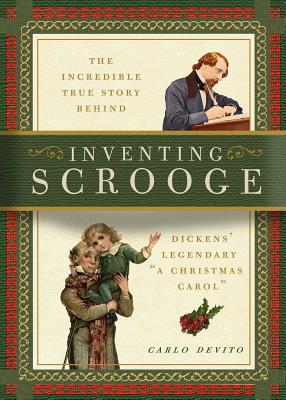
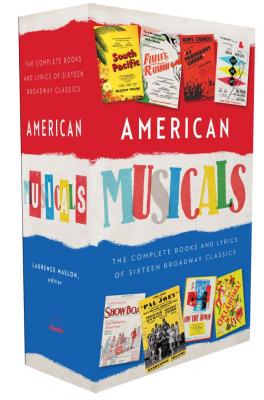
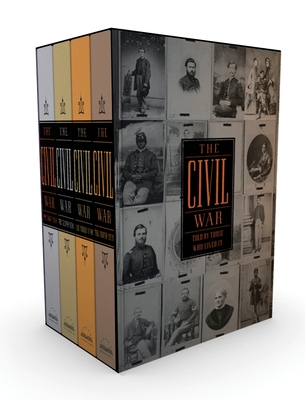
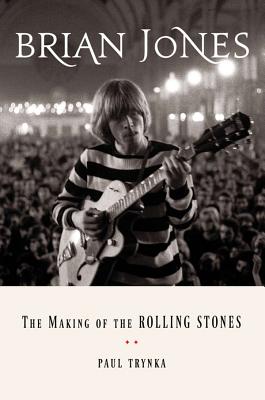
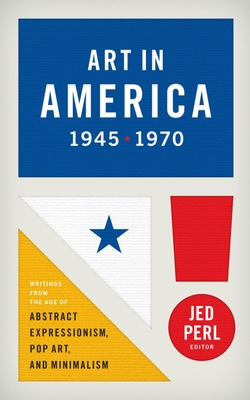
No comments:
Post a Comment